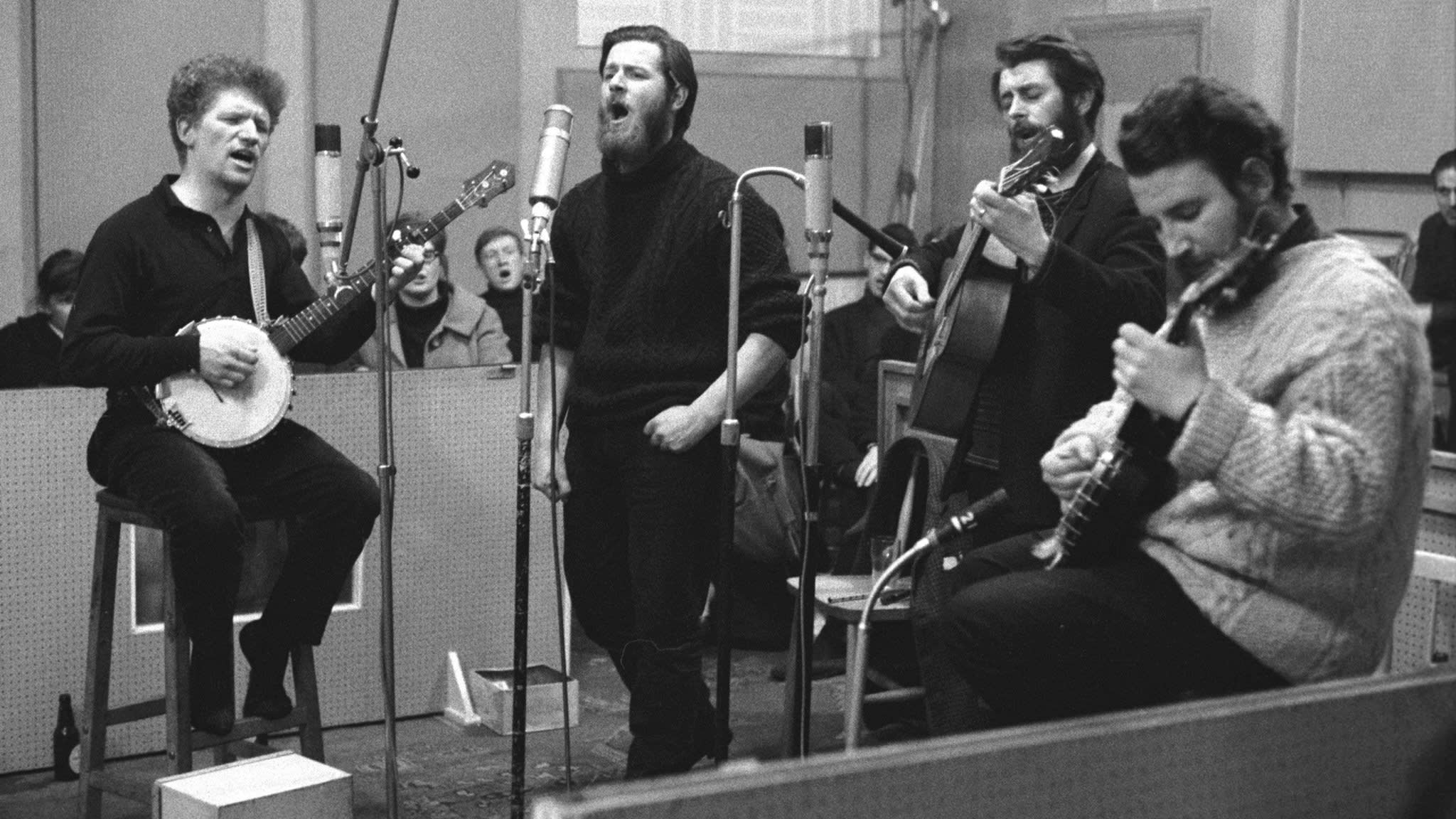Songs are sometimes much more than a mere confection of words and music. Take the enduringly popular Irish ballad “Raglan Road”, whose ingredients are a dark-haired beauty, a lovelorn poet, a sublime ancient melody and one of Ireland’s finest folk singers.
In 1944 Patrick Kavanagh, who was to become one of Ireland’s most popular poets, fell hopelessly in love at the age of 40 with a beautiful medical student named Hilda Moriarty, then only 22. They both had lodgings on Raglan Road, Dublin, and a relatively short relationship ensued that ended because of the age difference and her parents’ disapproval of a middle-aged man who was barely scraping a living from poetry and journalism. Moriarty later married an aspiring politician, Donogh O’Malley, a dashing figure who as education minister in 1966 introduced the crucial reform of free secondary education and rural school buses in the Irish Republic.
Heartbroken at losing her, Kavanagh composed one of the great poems of unrequited love, “On Raglan Road”, which was first published in The Irish Press newspaper in 1946. The opening lines reveal his fear that the affair was doomed from day one: “On Raglan Road on an autumn day I met her first and knew/ That her dark hair would weave a snare that I might one day rue . . . ”
Kavanagh always regarded his poem as a song lyric, however, and matched it to the traditional Irish air “Fáinne Geal an Lae”, which was first published in 1847 and translated into English as “The Dawning of the Day”, a phrase he uses in the poem.
Another 20 years passed before his hope of it becoming a successful song was fulfilled. One night in 1966 Kavanagh buttonholed Luke Kelly, singer with The Dubliners folk group, in the city’s The Bailey bar. Both men were renowned drinkers, and as Kelly supped on Guinness and a shot of whiskey in the smoky bar after a singing session, Kavanagh announced: “I’ve got a song for you! You should sing ‘Raglan Road’.”
Unlike the match with Moriarty, this one was made in heaven. Kelly, a striking figure with a shock of curly red hair and a commanding tenor voice, loved the song and his compelling renditions of it are regarded by many as unsurpassed.
Thanks to his and The Dubliners’performances “Raglan Road” became popular in Ireland, even though the group did not record it until their 1972 live album, Hometown!. Kavanagh, sadly, never saw his song become a hit — he died a year after presenting it to Kelly.
The song gained a second surge of life in 1988, this time bringing international recognition, when Van Morrisonrecorded it with The Chieftains for the album Irish Heartbeat. While The Dubliners’ delivery is stately, with Kelly’s voice dominant over simple banjo, guitar, tin whistle and violin, Morrison’s dramatic arrangement interprets the poem’s emotions with another vocal tour de force.
As The Chieftains’ accompaniment grows to a swirling support with Paddy Moloney’s uilleann pipes to the fore, Morrison’s voice soars, repeats words and even reduces to a whisper for the lines: “On a quiet street where old ghosts meet,/ I see her walking now, Away from me,/ So hurriedly. My reason must allow . . . ”
Since then many folk artists have recorded it, as well as rock stars Sinéad O’Connor, Roger Daltreyand Mark Knopfler, but none quite matches the passionate pomp that Kelly and Morrison bring and which the song demands. The likes of Ed Sheeran, Billy Braggand Billy Joel have also sung it in concert.
And in 2008 Kelly’s rendition was heard again in the film In Bruges, by writer/director Martin McDonagh, of Three Billboards Outside Ebbing, Missouri fame.
“Raglan Road” was also a favourite song of Martin McGuinness, the former IRA commander turned peacemaker, and in 2017 it was sung at the start of his funeral procession in Derry, by Frances Black, the Irish singer and politician. As an expression of love and grief, it takes some beating.
We’re keen to hear from our readers. Do you have memories of ‘Raglan Road’? Let us know in the comments below.
‘The Life of a Song: The fascinating stories behind 50 of the world’s best-loved songs’, edited by David Cheal and Jan Dalley, is published by Brewer’s.
Music credits: TY4TM, Real World Records, Legacy Recordings, RCA Victor, Cooking Vinyl
Picture credit: Brian Shuel/Redferns
